Helena Třeštíková
Nascimento : 1949-06-22, Praha
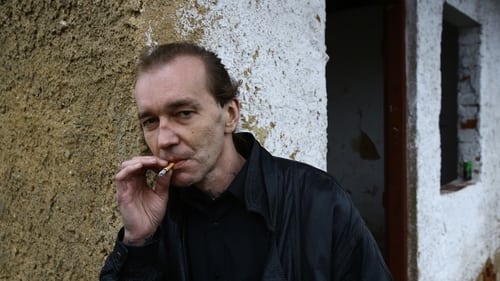
Director
The Czech criminal René is finding it difficult to go straight. Roaming from job to shelter, from woman to woman, he discovers that living honestly is a lot more difficult than just stealing something every once in a while. In 1989, filmmaker Helena Třeštíková started filming the then 18-year-old delinquent, ultimately resulting in the 2008 film René, which follows his life inside and outside prison. This sequel to that film begins with the premiere of René and the ensuing storm of media attention.

Director
Anny follows the life of the titular, intriguing character for 16 years, from 1996 up until 2012. Living in the Czech Republic, Anny is a 46-year-old woman whose day-to-day life has consisted of several different occupations, from a bathroom attendant and a doorman, to occasional sex work. Her outlook on her jobs is fairly simple, you have to do the work if you want to eat, spoil your grandkids, or buy yourself new clothes.
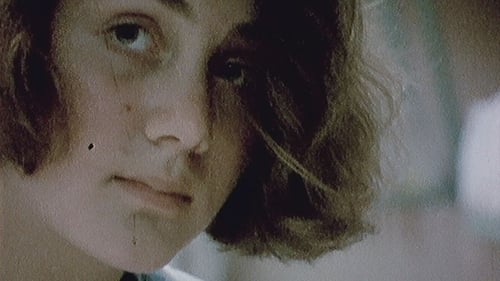
Screenplay

Director
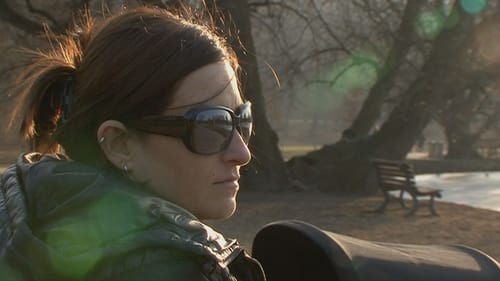
Screenplay

Director

Writer
Um revelador documentário sobre o mais famoso cineasta tcheco, Miloš Forman, duas vezes ganhador do Oscar. Por meio de um valioso tesouro de imagens de arquivo, o filme ajuda a entender como Forman superou sistemas (do nazismo e o comunismo até Hollywood) de forma a moldar seu cinema de resistência. Um tributo sincero e comovente que mostra um artista sempre em meio à luta política e de criação.

Director
Um revelador documentário sobre o mais famoso cineasta tcheco, Miloš Forman, duas vezes ganhador do Oscar. Por meio de um valioso tesouro de imagens de arquivo, o filme ajuda a entender como Forman superou sistemas (do nazismo e o comunismo até Hollywood) de forma a moldar seu cinema de resistência. Um tributo sincero e comovente que mostra um artista sempre em meio à luta política e de criação.
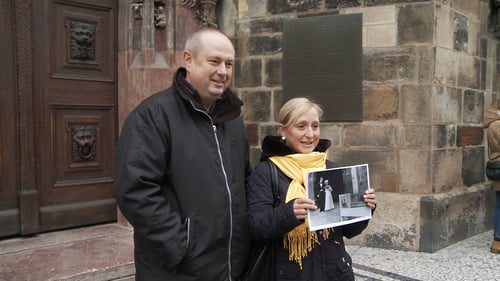
Scenario Writer
In 35 years of one couple's shared life, a lot of things happen: from the moments of an absolute harmony to the dramatic falls. For the most of the time, the couple cares for common daily life issues and joys that come together with raising the children, running the household or running a business. And this is exactly the life of furniture shop owners Ivana and Vaclav Strnadovi, 2 characters that a director Helena Trestíková follows with her camera as of the year 1980 within a project The Marriage Story. Her new feature documentary about Strnad family is linked to TV films from this cycle, but most importantly it shows further shocking twists, that life brought to the couple and their children.

Director
In 35 years of one couple's shared life, a lot of things happen: from the moments of an absolute harmony to the dramatic falls. For the most of the time, the couple cares for common daily life issues and joys that come together with raising the children, running the household or running a business. And this is exactly the life of furniture shop owners Ivana and Vaclav Strnadovi, 2 characters that a director Helena Trestíková follows with her camera as of the year 1980 within a project The Marriage Story. Her new feature documentary about Strnad family is linked to TV films from this cycle, but most importantly it shows further shocking twists, that life brought to the couple and their children.
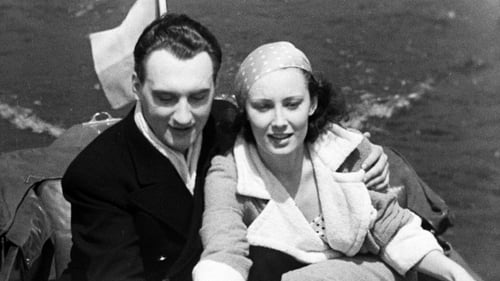
Writer
Documentary film about Czech actress Lida Baarova, who fall in love with Joseph Goebbels in the 30s.

Director
Documentary film about Czech actress Lida Baarova, who fall in love with Joseph Goebbels in the 30s.
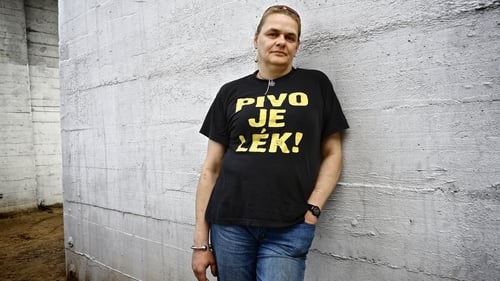
Writer
Life hasn't been easy on Mallory but after the birth of her son she tries desperately to kick her drug habit, and to stop living on the street. She wants to turn her back on her dark past and help those she knows best - people on the fringes of society.

Director
Life hasn't been easy on Mallory but after the birth of her son she tries desperately to kick her drug habit, and to stop living on the street. She wants to turn her back on her dark past and help those she knows best - people on the fringes of society.

Screenplay

Director

Screenplay

Director

Producer
Honza was born in 1974 into the cheerless era of socialism in Czechoslovakia. At that time, his parents Jana and Petr lived in one room in the apartment of Jana's divorced mother and her widowed grandmother. A few years later, the family moved from Prague to Liberec where Petr found a job and a little house for the family. When Honza was born, his father began writing a family chronicle and he has continued to do so for 37 years. "Private Universe" show not only the life of one ordinary family, but also how the Czech society has changed in last four decades. Who are we, where do we come from and where do we go?

Idea
Honza was born in 1974 into the cheerless era of socialism in Czechoslovakia. At that time, his parents Jana and Petr lived in one room in the apartment of Jana's divorced mother and her widowed grandmother. A few years later, the family moved from Prague to Liberec where Petr found a job and a little house for the family. When Honza was born, his father began writing a family chronicle and he has continued to do so for 37 years. "Private Universe" show not only the life of one ordinary family, but also how the Czech society has changed in last four decades. Who are we, where do we come from and where do we go?

Screenplay
Honza was born in 1974 into the cheerless era of socialism in Czechoslovakia. At that time, his parents Jana and Petr lived in one room in the apartment of Jana's divorced mother and her widowed grandmother. A few years later, the family moved from Prague to Liberec where Petr found a job and a little house for the family. When Honza was born, his father began writing a family chronicle and he has continued to do so for 37 years. "Private Universe" show not only the life of one ordinary family, but also how the Czech society has changed in last four decades. Who are we, where do we come from and where do we go?

Director
Honza was born in 1974 into the cheerless era of socialism in Czechoslovakia. At that time, his parents Jana and Petr lived in one room in the apartment of Jana's divorced mother and her widowed grandmother. A few years later, the family moved from Prague to Liberec where Petr found a job and a little house for the family. When Honza was born, his father began writing a family chronicle and he has continued to do so for 37 years. "Private Universe" show not only the life of one ordinary family, but also how the Czech society has changed in last four decades. Who are we, where do we come from and where do we go?

Screenplay
“You bet on someone in the beginning of the process and then you wait and see what life does with them.” This is how Czech director Helena Trestikova explains her long-term documentaries. Following on from the European Film Academy Award winning RENE (2008), Trestikova brings us KATKA – 14 years in the life of a drug addict. KATKA is an extraordinarily raw and uncensored character portrait of a troubled young woman living on the edge of human existence, desperately searching for love and salvation. Will she find it in the rehab? Will she find it in the arms of the man she loves? Or in the first cry of her long-desired baby? Tagging along with her through the back streets and squalors of Prague, Trestikova gets deep under the skin of a person most of us would cross the road to avoid, and shows us Katka’s profoundly human face. You might be angry with Katka, or your heart may go out to her. One thing is certain – you will never forget her.

Director
“You bet on someone in the beginning of the process and then you wait and see what life does with them.” This is how Czech director Helena Trestikova explains her long-term documentaries. Following on from the European Film Academy Award winning RENE (2008), Trestikova brings us KATKA – 14 years in the life of a drug addict. KATKA is an extraordinarily raw and uncensored character portrait of a troubled young woman living on the edge of human existence, desperately searching for love and salvation. Will she find it in the rehab? Will she find it in the arms of the man she loves? Or in the first cry of her long-desired baby? Tagging along with her through the back streets and squalors of Prague, Trestikova gets deep under the skin of a person most of us would cross the road to avoid, and shows us Katka’s profoundly human face. You might be angry with Katka, or your heart may go out to her. One thing is certain – you will never forget her.

Screenplay
An intimate portrait of a man on the edge of society, filmed over the course of twenty years.

Director
An intimate portrait of a man on the edge of society, filmed over the course of twenty years.
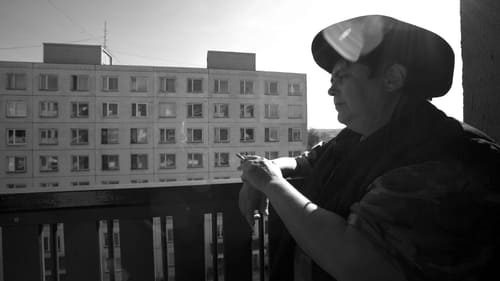
Screenplay
The life of Marcela, an ordinary Czech woman is explored throughout several decades of her life. We are engaged to struggle and fight back with Marcela as her tragic life unfolds before our eyes especially when dealing with her daughter’s unexpected death, which almost drives her to suicide. The film was initially part of a series about the fate of six married couples, but the events that happened throughout Marcela’s life were the reason why the director decided to focus solely on a documentary about her.

Director
The life of Marcela, an ordinary Czech woman is explored throughout several decades of her life. We are engaged to struggle and fight back with Marcela as her tragic life unfolds before our eyes especially when dealing with her daughter’s unexpected death, which almost drives her to suicide. The film was initially part of a series about the fate of six married couples, but the events that happened throughout Marcela’s life were the reason why the director decided to focus solely on a documentary about her.

Herself
Heda Blochová was born in Prague into the Jewish family of the cofounder of the well-known Koh-i-noor factory. She married Rudolf Margolius, a lawyer. Soon after the wedding the young couple and the whole Margolius family were deported to the ghetto in Lodz. After spending a couple of years there, they were all taken to Oswiecim concentration camp. There the family was parted. Heda was lucky enough to be taken to a labour camp after a few months and was finally made to join the Death March. She managed to escape the guards and thus saved her life.

Writer
Heda Blochová was born in Prague into the Jewish family of the cofounder of the well-known Koh-i-noor factory. She married Rudolf Margolius, a lawyer. Soon after the wedding the young couple and the whole Margolius family were deported to the ghetto in Lodz. After spending a couple of years there, they were all taken to Oswiecim concentration camp. There the family was parted. Heda was lucky enough to be taken to a labour camp after a few months and was finally made to join the Death March. She managed to escape the guards and thus saved her life.

Director
Heda Blochová was born in Prague into the Jewish family of the cofounder of the well-known Koh-i-noor factory. She married Rudolf Margolius, a lawyer. Soon after the wedding the young couple and the whole Margolius family were deported to the ghetto in Lodz. After spending a couple of years there, they were all taken to Oswiecim concentration camp. There the family was parted. Heda was lucky enough to be taken to a labour camp after a few months and was finally made to join the Death March. She managed to escape the guards and thus saved her life.

Screenplay
Lenka and Míra Hřib are a young married couple with two small children. They are both interested in ecology and sustainable life.

Director
Lenka and Míra Hřib are a young married couple with two small children. They are both interested in ecology and sustainable life.

Screenplay
A documentary film following several years in the life of Jan Potměšil who has become a very popular actor at an early age, representing the type of a young sporty intellectual. After a serious car crash in 1989, he ended up on a wheelchair. He was 23 years old at the time. After a year of rehabilitation, he returned to the stage. Excelling in “Flowers for Algernon”, he continuously acts in the production in front of sell-out crowds across the country. He also lives his personal life, experiencing new loves and breakups, is engaged in civic affairs and returns to the hospital now and then. The film aims to give a non-pathetic image of a life lived to the full despite adversity.

Director
A documentary film following several years in the life of Jan Potměšil who has become a very popular actor at an early age, representing the type of a young sporty intellectual. After a serious car crash in 1989, he ended up on a wheelchair. He was 23 years old at the time. After a year of rehabilitation, he returned to the stage. Excelling in “Flowers for Algernon”, he continuously acts in the production in front of sell-out crowds across the country. He also lives his personal life, experiencing new loves and breakups, is engaged in civic affairs and returns to the hospital now and then. The film aims to give a non-pathetic image of a life lived to the full despite adversity.

Screenplay
An observational documentary about Jakub Špalek and all his activities, victories and losses in the years 1989 to 1999.

Director
An observational documentary about Jakub Špalek and all his activities, victories and losses in the years 1989 to 1999.

Screenplay

Director

Writer
"The whole film talks about the time when I was first locked up, from sixteen till now, I’m 22 now, and during that whole time I was out maybe five months, and I’ve really had it by now. It’s also about why I’d given my life to Jesus Christ and then failed that Jesus in me because I was tempted by earthly pleasures; and it’s also about how every time I’m ready to start a new life, I get locked up again because it’s always too late. It’s just too late. That’s the greatest shame and that’s what it’s about..."

Director
"The whole film talks about the time when I was first locked up, from sixteen till now, I’m 22 now, and during that whole time I was out maybe five months, and I’ve really had it by now. It’s also about why I’d given my life to Jesus Christ and then failed that Jesus in me because I was tempted by earthly pleasures; and it’s also about how every time I’m ready to start a new life, I get locked up again because it’s always too late. It’s just too late. That’s the greatest shame and that’s what it’s about..."

Writer
Lada is a product of "educational“ or "corrective“ institutions. Not only is he not educated or corrected, he simply does not understand anything about life. He solves his problems in his own way – by swallowing sharp objects.

Director
Lada is a product of "educational“ or "corrective“ institutions. Not only is he not educated or corrected, he simply does not understand anything about life. He solves his problems in his own way – by swallowing sharp objects.

Writer
René has been in prison since he was 16. He is sick of life and doesn’t care about his parents (just as René’s parents never cared about him when he was a child); he doesn’t even know how many more children they had. After the general amnesty, René just hangs around, not satisfied in any job, and with his younger brother he starts stealing. In no time he is back in prison, this time joined by his brother who is still a youth. History repeats itself and René’s life philosophy seems to be confirmed: You enjoy your freedom for a while, then go to prison and the same thing happens all over again.

Director
René has been in prison since he was 16. He is sick of life and doesn’t care about his parents (just as René’s parents never cared about him when he was a child); he doesn’t even know how many more children they had. After the general amnesty, René just hangs around, not satisfied in any job, and with his younger brother he starts stealing. In no time he is back in prison, this time joined by his brother who is still a youth. History repeats itself and René’s life philosophy seems to be confirmed: You enjoy your freedom for a while, then go to prison and the same thing happens all over again.

Writer
Pavlina is a drug addict imprisoned, as well as her boyfriend, for illegal drug manufacturing. They meet again after the amnesty and the vicious circle of drugs starts rolling again.

Director
Pavlina is a drug addict imprisoned, as well as her boyfriend, for illegal drug manufacturing. They meet again after the amnesty and the vicious circle of drugs starts rolling again.

Screenplay
This student film by the award-winning Helena Třeštíková bears many of the hallmarks of her later work. Made as a graduation piece when she was at the FAMU Film and TV Academy in Prague, we see the director developing the distinctive observational style of filmmaking that she has used so effectively throughout her career. Over the course of several months, she follows a young pregnant woman as she becomes slowly acquainted with the joys and responsibilities of motherhood.

Director
This student film by the award-winning Helena Třeštíková bears many of the hallmarks of her later work. Made as a graduation piece when she was at the FAMU Film and TV Academy in Prague, we see the director developing the distinctive observational style of filmmaking that she has used so effectively throughout her career. Over the course of several months, she follows a young pregnant woman as she becomes slowly acquainted with the joys and responsibilities of motherhood.






































